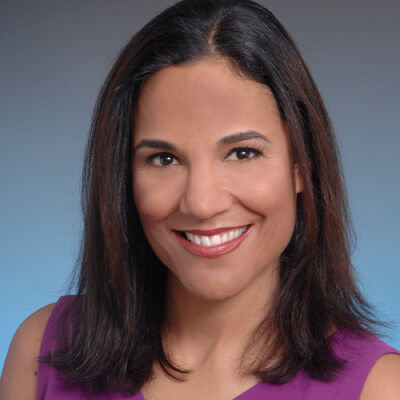This week, we were in Dubai for the launch of the International Monetary Fund’s Regional Economic Outlook report for the Middle East and North Africa. The key takeaway from our panel, which included the report’s author, was that the nations of the region will need to bolster their shock absorbers to deal with trade war-driven economic uncertainty. The Fund highlighted the divergent fortunes of the region’s oil exporters, with the Gulf Cooperation Council (GCC) nations best prepared to withstand a lower price environment due to their structural reforms and diversification efforts.
“At risk for a hard landing are the producers that have struggled to get their fiscal houses in order and have more anemic non-oil sector growth (such as Algeria, Iraq, and Libya).”
Helima Croft, Head of Global Commodity Strategy & MENA Research, RBC Capital Markets
We shall see if the more resilient OPEC producers will push for another accelerated output increase on Monday or if they will opt for a more cautious single month addition in line with the original taper schedule. While we think the situation remains fluid—and there appears to be a concerted effort to exercise message discipline ahead of the meeting—we do see a case for forgoing another triple-decker increase next month and adhering more closely to the taper timeline from December given current market dynamics. A more measured phase-in potentially avoids an excessive inventory build and allows a meaningful portion of the increase to be absorbed domestically, with the seasonal power generation swing set to commence. Nonetheless, we certainly do not rule out another plot twist from the producer group.
In advance of President Trump’s visit to the region, Eric Trump was in Dubai this week speaking at a crypto conference and announcing a new 80-story Trump Tower in the Emirate. Both Trump visits underscore the GCC’s favored position as other long-standing American allies face a more fraught relationship with Washington. The May 13 trip to Saudi Arabia, the UAE, and Qatar was President Trump’s first planned international trip prior to his visit to Rome for Pope Francis’s funeral. Officials deny that Washington influenced the recent OPEC output decisions.
“The recent move lower for oil prices certainly represents one of the most important economic bright spots for the Trump administration, especially as they seek to incentivize the Fed to cut rates.”
Helima Croft, Head of Global Commodity Strategy & MENA Research, RBC Capital Markets
We will be watching closely for any potential deliverables from President Trump’s trip to the region. Energy Secretary Chris Wright has already signaled significant momentum on a new US-Saudi civilian nuclear partnership, which had been a key component of the US-Saudi grand bargain negotiations. We could envision further deals covering aerospace and defense and advanced AI technology when President Trump walks the region’s red carpets in two weeks’ time. There are already reports US officials may be looking to ease the restriction on the sale of Nvidia chips to the UAE, and the AI build out remains a top priority for the GCC leaders.
While all eyes are on the May 5 OPEC meeting, the US-Iran nuclear talks remain a key geopolitical story for oil markets heading into summer. President Trump this week escalated efforts to reduce Iranian exports, vowing to impose secondary sanctions on importers of Iranian oil and petrochemicals; a move largely targeting China. The exact date and location of the next round of nuclear talks seem to be in a state of flux following Mike Waltz’s announced move to the UN and Marco Rubio temporarily taking on the dual Secretary of State and National Security Advisor roles.
There still seems to be significant viewpoint diversity in Republican circles over whether Iran should be compelled to dismantle its nuclear program or if an enhanced version of the 2015 JCPOA agreement is sufficient for a new agreement. With the full dismantlement approach a likely non-starter in Tehran—and a potential precursor to military action—the UAE civilian nuclear model has seemingly emerged as a third way/compromise position. There are reports that US special envoy Steve Witkoff is amenable to Iran importing fuel for nuclear reactors and thereby foregoing the dual use domestic uranium enrichment. It is still unclear whether the UAE-inspired proposal will fly with the Supreme Leader of Iran as the nuclear clock continues to wind down ahead of an anticipated June inflection point.
Helima Croft authored “Post card from Dubai: Most favored nations,” published on May 5, 2025. For more information on the full report, please contact your RBC representative.
